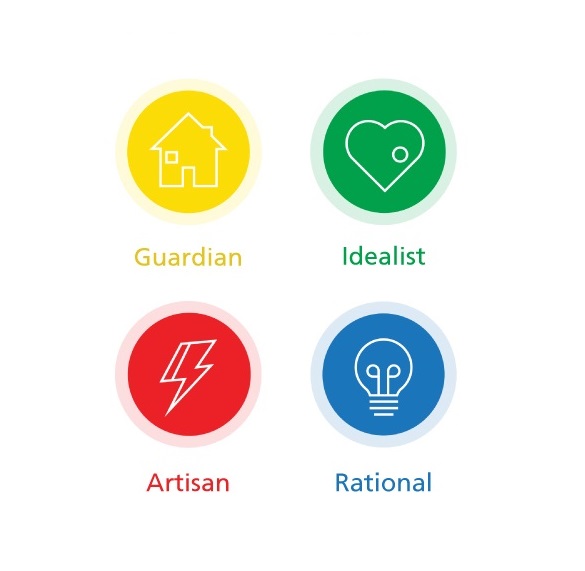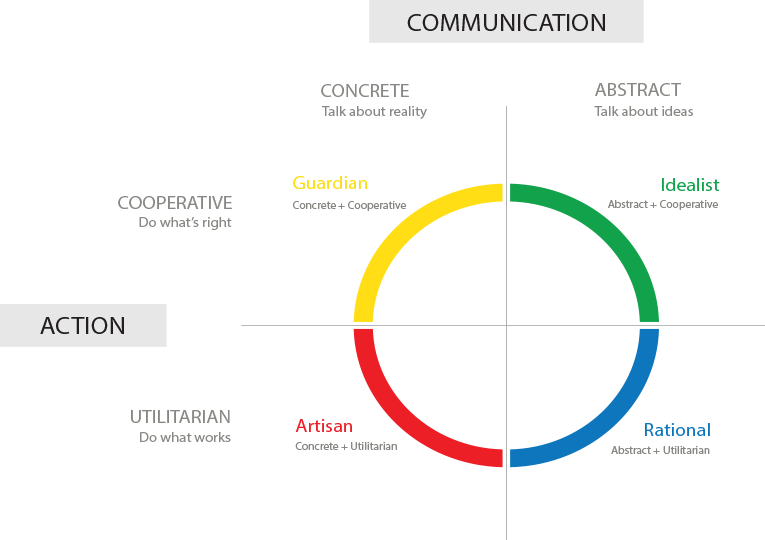The four temperaments
Dr. David Keirsey
has identified humankind's four basic temperaments as the Guardian, the Idealist, the Artisan and the Rational.
Through an understanding of our own temperament, we can learn more effective ways of communicating with others and reaching our dreams and aspirations. There is great power in increasing self-knowledge/self-awareness and sensitive understanding of important people in our lives. With this in mind, let's explore the basic differences between the four temperaments described by Keirsey.

GUARDIANS
Guardians are the cornerstone of society, for they are the temperament given to serving and preserving our most important social institutions. Guardians have natural talent in managing goods and services--from supervision to maintenance and supply -- and they use all their skills to keep things running smoothly in their families, communities, schools, churches, hospitals, and businesses.
IDEALISTS
Idealists, as a temperament, are passionately concerned with personal growth and development. Idealists strive to discover who they are and how they can become their best possible self -- always this quest for self-knowledge and self-improvement drives their imagination. And they want to help others make the journey. Idealists are naturally drawn to working with people, and whether in education or counseling, in social services or personnel work, in journalism or the ministry, they are gifted at helping others find their way in life, often inspiring them to grow as individuals and to fulfill their potentials.
ARTISANS
Artisans are the temperament with a natural ability to excel in any of the arts, not only the fine arts such as painting and sculpting, or the performing arts such as music, theater, and dance, but also the athletic, military, political, mechanical, and industrial arts, as well as the "art of the deal" in business.
RATIONALS
Rationals are the problem solving temperament, particularly if the problem has to do with the many complex systems that make up the world around us. Rationals might tackle problems in organic systems such as plants and animals, or in mechanical systems such as railroads and computers, or in social systems such as families and companies and governments. But whatever systems fire their curiosity, Rationals will analyze them to understand how they work, so they can figure out how to make them work better.

